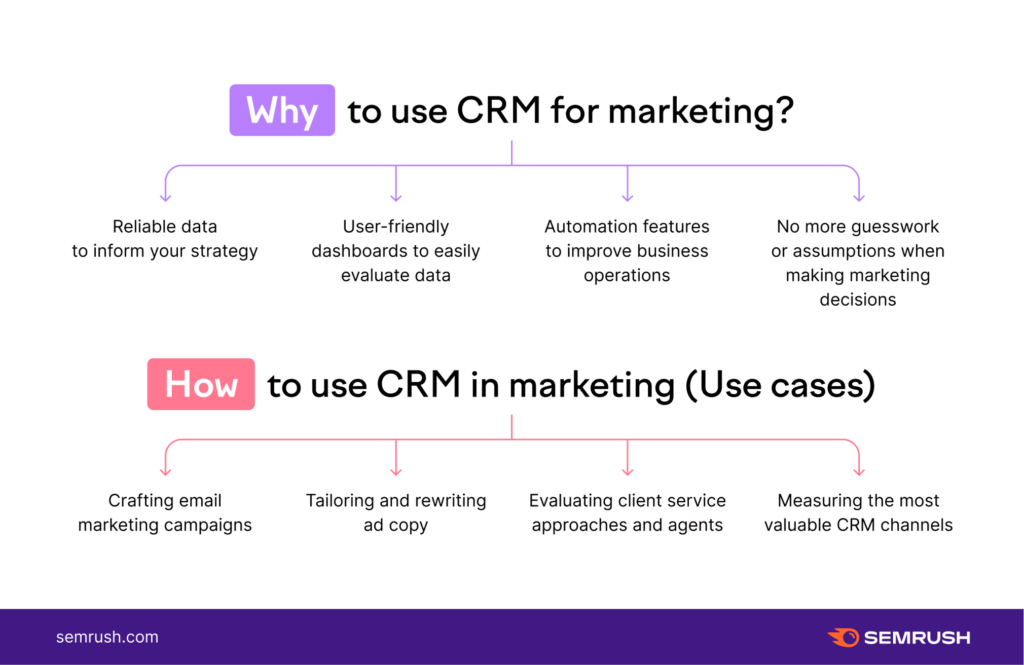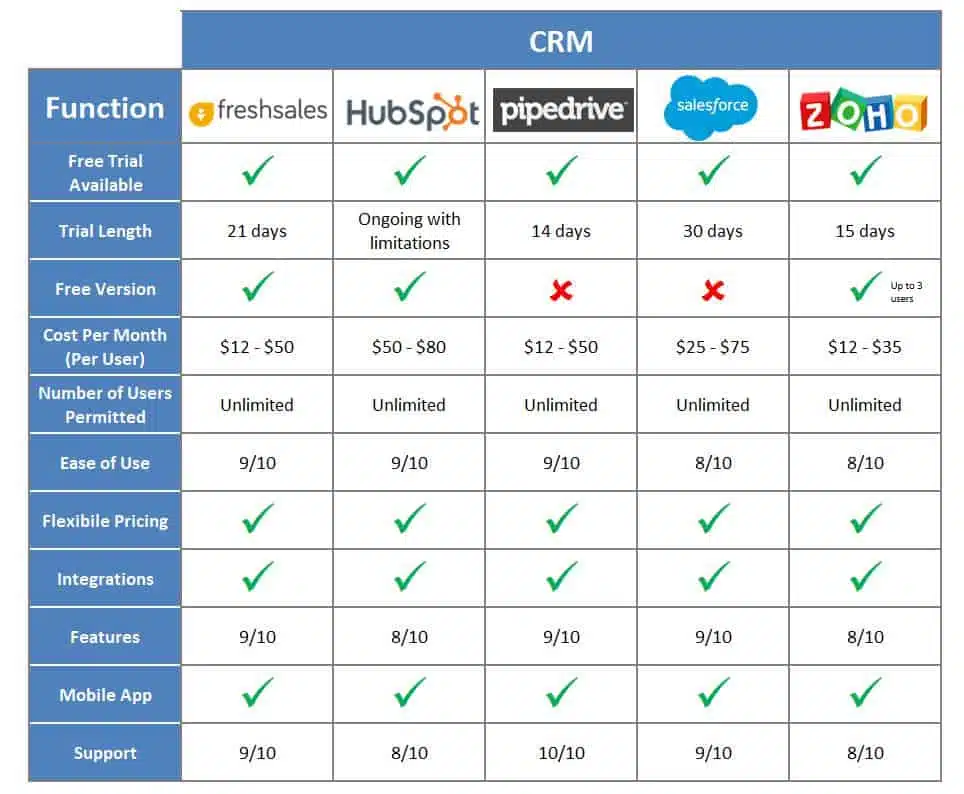
Boost Your Sales with CRM, Marketing Magic, and Social Proof: A Winning Trifecta
In today’s hyper-competitive business landscape, simply having a great product or service isn’t enough. You need to connect with your audience, build trust, and show them why they should choose you. That’s where the powerful combination of Customer Relationship Management (CRM), strategic marketing, and the undeniable force of social proof comes in. This article will delve deep into how you can leverage these three elements to create a sales powerhouse, driving conversions and fostering long-term customer loyalty.
Understanding the Power of CRM
At its core, CRM is about managing your relationships with customers. It’s a system that allows you to store, track, and analyze all interactions with your leads and customers. Think of it as the central nervous system of your sales and marketing efforts. A well-implemented CRM system empowers you to:
- Centralize Customer Data: Say goodbye to scattered spreadsheets and siloed information. A CRM consolidates all customer data in one place, providing a 360-degree view of each customer. This includes contact information, purchase history, communication logs, and more.
- Improve Lead Management: CRM helps you track leads through the sales pipeline, from initial contact to conversion. You can nurture leads with targeted campaigns, automate follow-ups, and identify the most promising prospects.
- Enhance Sales Team Productivity: By automating repetitive tasks and providing easy access to customer information, CRM frees up your sales team to focus on building relationships and closing deals.
- Personalize Customer Interactions: Armed with a wealth of customer data, you can personalize your marketing messages, product recommendations, and customer service interactions, making each customer feel valued.
- Gain Actionable Insights: CRM provides valuable data and analytics that can help you understand customer behavior, identify trends, and optimize your sales and marketing strategies.
Choosing the right CRM is crucial. Consider your business size, industry, and specific needs when selecting a CRM platform. Popular options include Salesforce, HubSpot CRM, Zoho CRM, and Pipedrive, each offering a range of features and pricing plans.
Marketing Strategies That Complement CRM
CRM is the engine, but marketing is the fuel. Effective marketing strategies, when integrated with CRM, amplify your reach and drive qualified leads into your sales funnel. Here are some key marketing tactics to consider:
Content Marketing
Content marketing is all about creating valuable, relevant, and consistent content to attract and engage your target audience. This can include blog posts, articles, videos, infographics, and more. The goal is to establish yourself as a thought leader in your industry and provide helpful information that addresses your audience’s needs. When integrated with CRM, content marketing becomes even more powerful. You can:
- Segment Your Audience: Use CRM data to segment your audience based on their interests, demographics, and behavior. Then, tailor your content to resonate with each specific segment.
- Personalize Content Delivery: Use CRM to personalize email newsletters, blog recommendations, and website content based on individual customer preferences.
- Track Content Performance: Monitor how your content performs by tracking clicks, downloads, and conversions within your CRM. This allows you to refine your content strategy and focus on what’s working.
- Nurture Leads: Use content to nurture leads through the sales funnel. Create a series of emails or a lead nurturing campaign that delivers valuable content at each stage of the customer journey.
Email Marketing
Email marketing remains one of the most effective ways to reach your audience and drive conversions. With CRM, you can take your email marketing to the next level. You can:
- Segment Your Email Lists: Use CRM data to segment your email lists based on customer demographics, purchase history, and engagement.
- Personalize Email Content: Address your subscribers by name, personalize subject lines, and tailor email content to their specific interests.
- Automate Email Campaigns: Set up automated email campaigns to welcome new subscribers, nurture leads, and re-engage inactive customers.
- Track Email Performance: Monitor your email open rates, click-through rates, and conversion rates within your CRM to optimize your email campaigns.
Social Media Marketing
Social media is a powerful platform for building brand awareness, engaging with your audience, and driving traffic to your website. By integrating your social media efforts with CRM, you can:
- Monitor Social Media Mentions: Use CRM to monitor social media mentions of your brand and track customer feedback.
- Identify Influencers: Identify influential individuals in your industry and engage with them on social media.
- Run Targeted Social Media Ads: Use CRM data to target your social media ads to specific customer segments.
- Track Social Media Conversions: Track conversions generated from your social media campaigns within your CRM.
Search Engine Optimization (SEO)
SEO is the practice of optimizing your website and content to rank higher in search engine results pages (SERPs). A strong SEO strategy can drive organic traffic to your website and generate leads. CRM can help you with SEO by:
- Keyword Research: CRM can help you identify the keywords your target audience is using to search for products or services like yours.
- Content Optimization: Use CRM data to optimize your website content for relevant keywords.
- Link Building: CRM can help you identify opportunities to build backlinks to your website.
- Track SEO Performance: Monitor your website’s search engine rankings and traffic within your CRM.
The Undeniable Power of Social Proof
Social proof is the psychological phenomenon where people look to the actions of others to guide their own behavior. In marketing, social proof can be a powerful tool for building trust, increasing conversions, and driving sales. Here’s how social proof works and how you can harness its power:
Types of Social Proof
There are several types of social proof you can leverage:
- Testimonials: Positive reviews and testimonials from satisfied customers are a powerful form of social proof. They provide authentic validation of your product or service.
- Reviews: Online reviews, such as those on Google, Yelp, and industry-specific review sites, can significantly impact your reputation and sales.
- Case Studies: Detailed case studies that showcase how your product or service has helped other customers achieve their goals can be highly persuasive.
- Social Media Mentions: Positive mentions of your brand on social media can provide valuable social proof.
- Influencer Marketing: Partnering with influencers in your industry can expose your brand to a wider audience and build credibility.
- Numbers and Statistics: Highlighting your customer base, sales figures, or awards can demonstrate your success and build trust.
- Expert Endorsements: Endorsements from industry experts or thought leaders can lend credibility to your brand.
Implementing Social Proof
Here’s how you can effectively implement social proof in your marketing efforts:
- Collect and Display Testimonials: Make it easy for customers to leave testimonials and prominently display them on your website, landing pages, and sales materials.
- Encourage Online Reviews: Actively encourage customers to leave reviews on relevant platforms. Respond to both positive and negative reviews to show that you value customer feedback.
- Create Compelling Case Studies: Develop detailed case studies that showcase the results you’ve achieved for your customers.
- Monitor Social Media: Keep an eye on social media mentions of your brand and share positive feedback.
- Partner with Influencers: Collaborate with influencers to promote your brand to their followers.
- Showcase Numbers and Statistics: Highlight your customer base, sales figures, or awards on your website and in your marketing materials.
- Seek Expert Endorsements: Reach out to industry experts or thought leaders for endorsements.
Integrating CRM, Marketing, and Social Proof: A Synergistic Approach
The true power of CRM, marketing, and social proof lies in their synergistic relationship. When these three elements work together seamlessly, they create a powerful engine for driving sales and building customer loyalty. Here’s how to integrate them effectively:
CRM as the Hub
Your CRM should be the central hub for all your sales and marketing activities. It’s where you store customer data, track interactions, and analyze performance. Integrate your marketing automation tools, social media management platforms, and review platforms with your CRM to ensure a unified view of your customers.
Marketing Automation
Use marketing automation tools to automate repetitive tasks, such as email marketing, lead nurturing, and social media posting. Integrate your marketing automation platform with your CRM to personalize your marketing messages based on customer data and track the performance of your campaigns.
Social Proof Integration
Integrate your social proof elements, such as testimonials, reviews, and case studies, into your CRM. Use your CRM to track customer feedback, identify satisfied customers, and request testimonials. Display social proof on your website, landing pages, and in your marketing emails to build trust and credibility.
Personalization
Leverage the data in your CRM to personalize your marketing messages and customer service interactions. Address your customers by name, tailor your content to their interests, and offer personalized product recommendations. This level of personalization will make your customers feel valued and build stronger relationships.
Measuring and Optimizing
Track the performance of your CRM, marketing, and social proof efforts. Use your CRM to analyze your sales data, track your marketing campaign results, and monitor customer feedback. Use this data to identify areas for improvement and optimize your strategies. Continuously test different approaches to see what resonates best with your audience.
Real-World Examples of Success
Let’s look at some real-world examples of companies that have successfully leveraged the power of CRM, marketing, and social proof:
- Amazon: Amazon is a master of CRM, marketing, and social proof. They use CRM to personalize product recommendations, track customer behavior, and provide excellent customer service. They also leverage social proof through customer reviews, ratings, and best-seller lists. Their marketing efforts are highly targeted and personalized, driving repeat purchases and customer loyalty.
- Starbucks: Starbucks uses a CRM system to track customer preferences, manage their loyalty program, and personalize their marketing efforts. They also leverage social proof through their mobile app, which allows customers to share their favorite drinks and earn rewards. Their marketing campaigns often feature customer testimonials and user-generated content.
- HubSpot: HubSpot is a leading provider of CRM and marketing automation software. They use their own software to manage their customer relationships, nurture leads, and personalize their marketing messages. They also leverage social proof through case studies, testimonials, and customer reviews. Their content marketing strategy is highly effective, attracting a large audience and generating qualified leads.
Challenges and How to Overcome Them
While the combination of CRM, marketing, and social proof can be incredibly powerful, it’s not without its challenges. Here are some common obstacles and how to address them:
- Data Silos: Data silos, where customer information is scattered across different systems, can hinder your ability to gain a complete view of your customers. To overcome this, integrate your CRM with your other systems, such as your marketing automation platform, e-commerce platform, and social media management tools.
- Lack of Integration: If your CRM and marketing tools aren’t integrated, you won’t be able to automate your marketing efforts or personalize your customer interactions. Choose a CRM and marketing automation platform that integrates seamlessly.
- Poor Data Quality: Inaccurate or incomplete customer data can lead to ineffective marketing campaigns and poor customer service. Regularly clean and update your customer data to ensure its accuracy.
- Resistance to Change: Implementing a new CRM or marketing strategy can be challenging, especially if your team is resistant to change. Provide training and support to help your team adapt to the new system.
- Measuring ROI: It can be difficult to measure the ROI of your CRM, marketing, and social proof efforts. Track key metrics, such as sales, leads, and customer engagement, to assess the effectiveness of your strategies.
The Future of CRM, Marketing, and Social Proof
The future of CRM, marketing, and social proof is bright. As technology continues to evolve, we can expect to see even more sophisticated tools and strategies. Here are some trends to watch:
- Artificial Intelligence (AI): AI will play an increasingly important role in CRM and marketing. AI-powered tools can automate tasks, personalize customer interactions, and predict customer behavior.
- Personalization at Scale: Businesses will be able to personalize their marketing messages and customer service interactions at scale, thanks to advancements in data analytics and AI.
- Voice Search Optimization: As voice search becomes more popular, businesses will need to optimize their content for voice search.
- Video Marketing: Video marketing will continue to grow in popularity, as it’s a highly engaging way to connect with your audience.
- Emphasis on Customer Experience: Businesses will place an even greater emphasis on customer experience, as it’s a key driver of customer loyalty.
Conclusion: A Winning Formula for Success
By combining the power of CRM, strategic marketing, and social proof, you can create a winning formula for driving sales, building customer loyalty, and achieving long-term success. Embrace these three elements, integrate them effectively, and continuously optimize your strategies to stay ahead of the competition. The future belongs to those who understand the importance of building strong customer relationships, delivering value, and leveraging the power of social proof.



